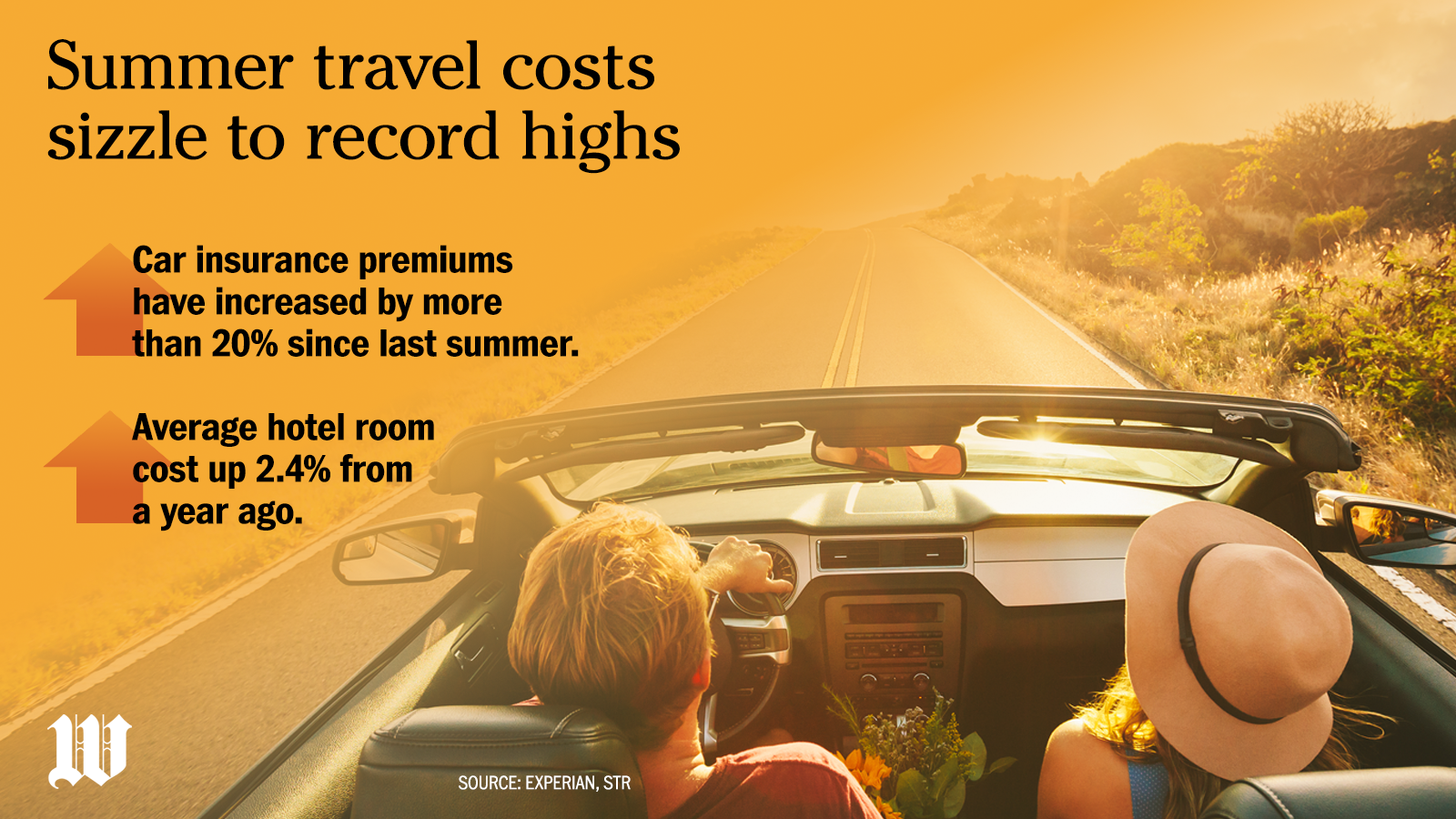The cost of a summer road trip is rising alongside consumer worries about high car insurance premiums, hotel rates and gas prices, according to recent reports.
In a survey of 1,008 insured drivers, the consumer research firm Experian found that 71% said inflation is jarring their warm-weather vacation plans. Most named gas, lodging and food their top anticipated expenses in descending order.
According to the survey, the average driver expects to spend over $1,000 and drive 512 miles this summer, enough for one gas stop.
The findings come as record numbers of Americans are hitting the roads and airways this summer. At the same time, the travel and hospitality industry has reported nagging post-pandemic labor shortages.
Leisure demand has rebounded from COVID-19 travel restrictions faster than the workforce needed to serve it, said Marc Scribner, a senior transportation policy analyst at the libertarian Reason Foundation.
“Surging demand and constrained supply have pushed up prices,” said Mr. Scribner, who was not involved with the Experian survey. “Things continue to normalize, but these adjustments will take time.”
The number of Americans traveling by road and plane for summer vacations recently passed pre-pandemic tallies for the first time.
Auto club AAA estimated that 70.9 million people traveled at least 50 miles from home during the Fourth of July week, including record highs of 60.6 million by car and 5.74 million by plane.
On Sunday, the Transportation Security Administration said it screened more than 3 million travelers through U.S. airport security for the first time in a single day. That passed the previous one-day record of 2.99 million passengers on June 23.
Despite increased consumer worries about inflation, the most recent figures show that airline and gasoline prices are down from a year ago.
According to the latest data from the Bureau of Labor Statistics, the average U.S. airfare adjusted for inflation dropped by 8.9% in May from the year before.
“Air travel is affordable, more convenient and safer than ever,” Hannah Walden, communications manager for the industry group Airlines for America, said Tuesday.
She noted that air carriers are offering 1,400 more flights this summer to accommodate a 6.3% increase in U.S. airline travel from last year.
Meanwhile, Experian’s report noted that gas prices have also cooled since last summer. On Tuesday, AAA said the average cost of gas was $3.51 per gallon, down 3 cents from a year ago.
On the other hand, Experian estimated that car insurance premiums have increased by more than 20% since last summer.
In the company’s survey, three out of four drivers expressed worries about rates rising further the next 12 months, and nearly a third said they plan on switching auto insurance companies in the next six months.

The Virginia-based Insurance Institute for Highway Safety blames the rate increases on a surge in drivers speeding, drinking and flaunting seatbelt laws since the pandemic.
“The spike began in 2020 with more severe crashes and more traffic deaths, and that has continued,” said Russ Rader, IIHS’ senior vice president of communications. “Since then, risky driving appears to have become the new normal, and that’s reflected in higher insurance rates.”
Prices have also risen in the hotel industry, where operators have struggled to hire staff back from pandemic furloughs even after increasing average hourly wages to a record-high $23.91 in December.
On July 3, leading hotel market researcher STR estimated that the average hotel room cost $160.40 a night in May, up 2.4% from a year ago.
According to the latest BLS data, the hotel industry employed 1.92 million workers in June.
That’s still 196,000 fewer workers than hotels had in February 2020 just before they furloughed workers during pandemic travel bans, the American Hotel and Lodging Association reported last week.
“Halfway through 2024, the hotel industry is behind where it needs to be when it comes to hiring staff, despite near-record high wages and expanding workplace benefits and flexibility,” said Kevin Carey, AHLA’s interim CEO. “The reason is the nationwide workforce shortage, which is preventing hoteliers from meeting their full potential as demand for travel remains strong.”
• Sean Salai can be reached at ssalai@washingtontimes.com.




Please read our comment policy before commenting.